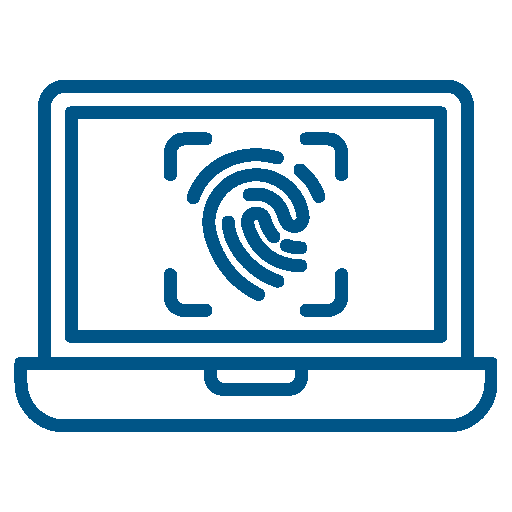Studies (full-time)
The course focuses on linking and analyzing digital and digitized forensic data. You will learn to methodically evaluate, analyze, and interpret the data secured by investigators during traditional crime-scene work or digitally so it can also be used as evidence in criminal proceedings in court. In addition to extensive computer science knowledge, you will acquire and deepen fundamental scientific knowledge and methods for modeling and simulating complex systems in modern forensics.
Fraud, forgery, sabotage, espionage: if you look at the federal situation report on cybercrime, you see a picture of the criminal offenses of the analog world. The number of cases and the amount of damage caused to state institutions by cyber criminals acting independently are exploding. Awareness of IT security has been heightened. But there is a lack of experts. To solve crimes on the Internet or prevent them before they happen, companies and authorities such as the police, LKA, and BKA need personnel who understand the tools of cybercrime. Many computer scientists do not learn this knowledge independently until after their studies. The master's program Cybercrime/Cybersecurity in Mittweida makes this unnecessary: Identifying IT vulnerabilities, securing public and private sector infrastructure against attacks, and using digital forensics to solve crimes are the contents of Cybercrime/Cybersecurity.
Extra-occupational studies
The aim of the new part-time distance learning course IT-Forensics/Cybercrime is to train police investigators and employees from companies in the field of IT-Forensics/Cybercrime. The modules offered are all subordinate to this goal or form the basis for these skills. In the modules, Cybercrime I and Cybercrime II, the crimes from this phenomenon area and the technical knowledge required for dealing with them are explicitly taught. A whole series of other modules are special forensics modules from the field of IT forensics. The program is completed with a Bachelor of Science Degree. In addition, it is possible to take only the first three semesters, and ending the program with a certificate is possible. This option is intended to enable civil servants to obtain post-qualification quickly. After graduation, graduates should be able to work independently as cybercrime investigators or as IT forensic specialists in an investigative agency or a company.
The study program, in cooperation with the Federal Criminal Police Office (BKA), is aimed primarily at federal and state investigative authorities, future or existing IT forensic experts, and employees of similar authorities such as customs, tax investigation, and the judiciary. The training is subject to the Digital Forensics Training Regulations (ADiF). After completing the compulsory modules at the university in Mittweida, all participants receive the 'Digital Forensics Officer' certificate. This training consists of 8 modules - one introductory and seven specialist modules - including theoretical and practical phases. A seamless transition to the 'Digital Forensics' expert training course is possible.

